 “Can’t see a thing’ till you open my eyes.” – The Nazz
“Can’t see a thing’ till you open my eyes.” – The Nazz
I’ve heard a lot of people say they just want to put 2022 in the rearview mirror. And given the way things have started in just the first 10 weeks of the new year, we may be feeling the same way. But with more than three-quarters of 2023 to go, our best move is to be clear-eyed and look at the road ahead. That’s because our ability to navigate what’s coming next will go a long way toward determining important outcomes.
It is just my sense – no research to back it up – that we’re at a turning point, an apogee, a pinnacle in our country, our world, and perhaps our careers. Things feel like they’re coming to a head, following a global financial meltdown, a global pandemic, and (gasp!) another global meltdown?
Just when we seem to somehow get past the last crisis, we’re smack in the middle of another one. I know some of you are thinking, “There he goes again.” After all, it’s Monday, the gloomiest day of our incredibly shrinking workweek. And I know some of you think I’ve gotten off to a something of a negative start for the new year.
My response is similar to what the great Yankees manager Casey Stengel once said:
“I calls ’em like I sees’ em.”
Interestingly, we might not be far away from the digital home plate umpire in baseball. A system called ABS – automatic balls and strikes. A robot ump will signal whether the pitched ball is in the strike zone – or not. Old Casey is probably turning over in his grave.
When it comes to our visual, cognitive, and analytical abilities, we are the ones tasked with making the calls. And increasingly, they’re getting tougher with each passing day.
Where you look, how you see, and how you process what’s right in front of your face – or around that next turn – will say a lot about your eventual outcome.
But we don’t always know what to do with our eyes. I perhaps first noticed this after participating in what we have always called “music meetings.” Typically, there are several new releases for a group to listen to.
And as each one is teed up and begins to play, the people in the room start looking around – but often at nothing in particular. Listening to new music – and actually hearing it – requires a level of attention and focus. It is not usually a good time in which to multitask. At least in the days of turntables, you could stare at the album spinning around.
What do you do with your eyes when you’re listening to music?
If the music connects with you, it often becomes visual. That doesn’t mean you start seeing things, but if a song takes you somewhere, it doesn’t really matter what your eyes are trained.
And that begs the question, how do you see your world around you – the people, your job, your purpose, and where it’s all going?
I have learned enough in the many decades I’ve been at this that it’s very much a work in progress. You “see” some things, if you’re lucky before most of us do. But you miss things, too. It’s human nature, and of course, not everything works out the way it should.
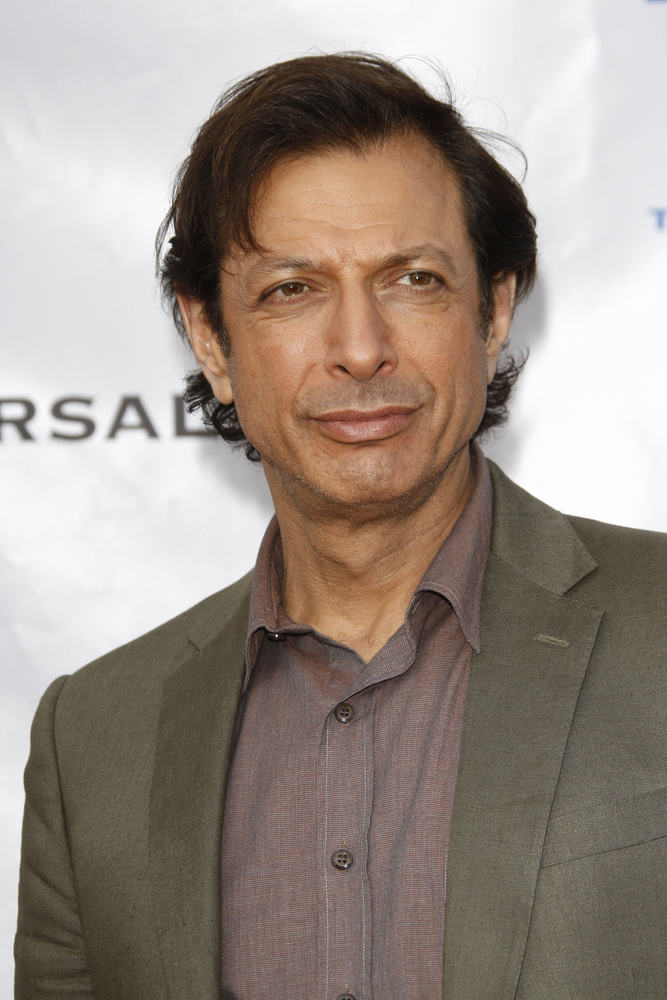
It’s what Jeff Goldblum a.k.a. Dr. Ian Malcolm expounded on in the first “Jurassic Park” film:
Chaos theory
Things often work in an “unpredictable fashion” – even in radio. Especially in radio.
But that doesn’t mean you’re destined to be surprised. I have found that if you train your mind and your vision, you can teach yourself to see more than perhaps you think.
Part of it is where you look.
I lot of people – myself included – do their best thinking while in the car. Oftentimes, your car or truck is your fortress of solitude, a place where you can truly be alone with your thoughts. And it’s no coincidence that if you’re in radio, the car is in many ways the center of your universe, the place where most listening still occurs.
Yes, the car is being disrupted. That’s a frequent topic in this blog, and deservedly so. As the car goes, so goes radio. We learned that the hard way back in 2020 when the morning and afternoon drive commutes all but disappeared during the early days, weeks, and months of the pandemic. If we needed a reminder about the paramount importance of in-car listening, radio got a very stark and painful one during COVID. And we still have not completely recovered.
As a program director, my think time was to hop in my car and “drive the market.” I honed in not only on my station, but the situations drivers find themselves in as they go about their lives. Some of my best programming and promotional ideas hit me while behind the wheel, looking at the Detroit market whizzing by.
And similarly during my decades in consulting, the combination of having the radio on and staring out that front hunk of glass has always been a source of creativity and inspiration.
 But sadly, a lot of people in radio are driving down the road, staring at their rearview mirrors. Yes, it’s nice to know who or what’s behind you, but for all the right reasons, it’s far more useful to know what’s coming up – especially on a winding road.
But sadly, a lot of people in radio are driving down the road, staring at their rearview mirrors. Yes, it’s nice to know who or what’s behind you, but for all the right reasons, it’s far more useful to know what’s coming up – especially on a winding road.
Yet, they continue to pine for a radio industry that has truly become an antique – something perhaps to be cherished, but not a place where you want to stake your future. What worked in the “good old days” might still have an application today. But the past is a nice place to visit – you just don’t want to live there.
By and large, that’s one of the reasons I don’t show up at many radio reunions. It’s not that I don’t want to acknowledge past greatness and accomplishments. Or to just see old friends. I just don’t want to marinate in Arbitron books of antiquity or to bask in the past.
“Arrested for driving while blind.” – ZZ Top
Of course, there are those side mirrors, especially those etched with that telltale phrase:
“Objects in the mirror are closer than they appear”
Radio’s powers-that-be haven’t always heeded that warning, allowing streaming, satellite radio, digital sales, and many other competitive forces to not just sneak up, but to pass traditional media. How often have we heard a radio leader discount the viability of a new technology or platform, only to have it pass us like we’re standing still?
It’s why the smart money is always best placed on looking out the front windshield – or in the UK, the windscreen. That thick piece of glass is designed primarily to protect you, but also provide you with the view that’s most important.
If, of course, you’re paying attention to what’s on the road ahead.
How can you accomplish that? Well, you probably know me well enough to predict I’m going to urge you to finally put CES on your “bucket list” and actually check it off in 2024.
There are other future-focused events to attend each year, but I challenge you to find a better 72-hour period where you’re liable to see the future this clearly.
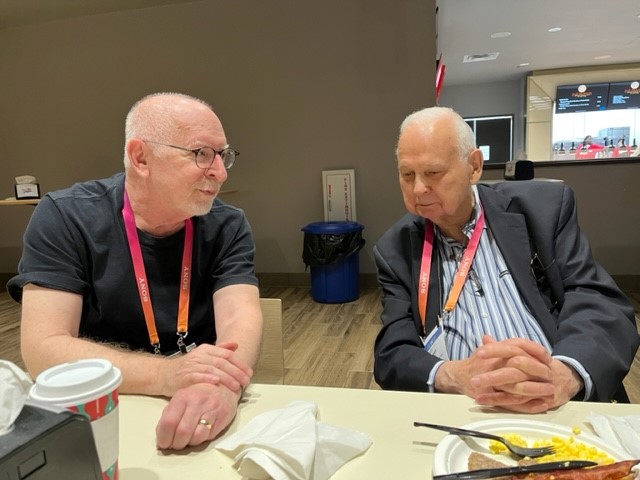 As my friend and mentor, Jerry Lee, explained this year in relation to the radio industry:
As my friend and mentor, Jerry Lee, explained this year in relation to the radio industry:
“We’ve got to start thinking about the future.”
it’s hard to argue with those words, especially already this year when the emphasis has sadly been on budget cuts, expense slashing, and selling properties that just a few months ago were being touted as company assets.
But an event like CES is more than just about seeing what’s new. It forces you to think about technology – how it might change, improve, or alter our world. Rather than being dismissive or defensive when you bump into something new, you teach yourself how to process it, to get your head around what it may mean.
It’s interesting that many automakers and Tier Ones are working hard on augmented reality – or AR. Typical applications in vehicles are heads-up displays on windshields or on the big screen in the dashboard.
As you can see below, this technology is designed to alert the driver (and passengers) to what’s coming up – a railroad crossing, a coffee shop, a traffic accident, or anything else that’s along our path.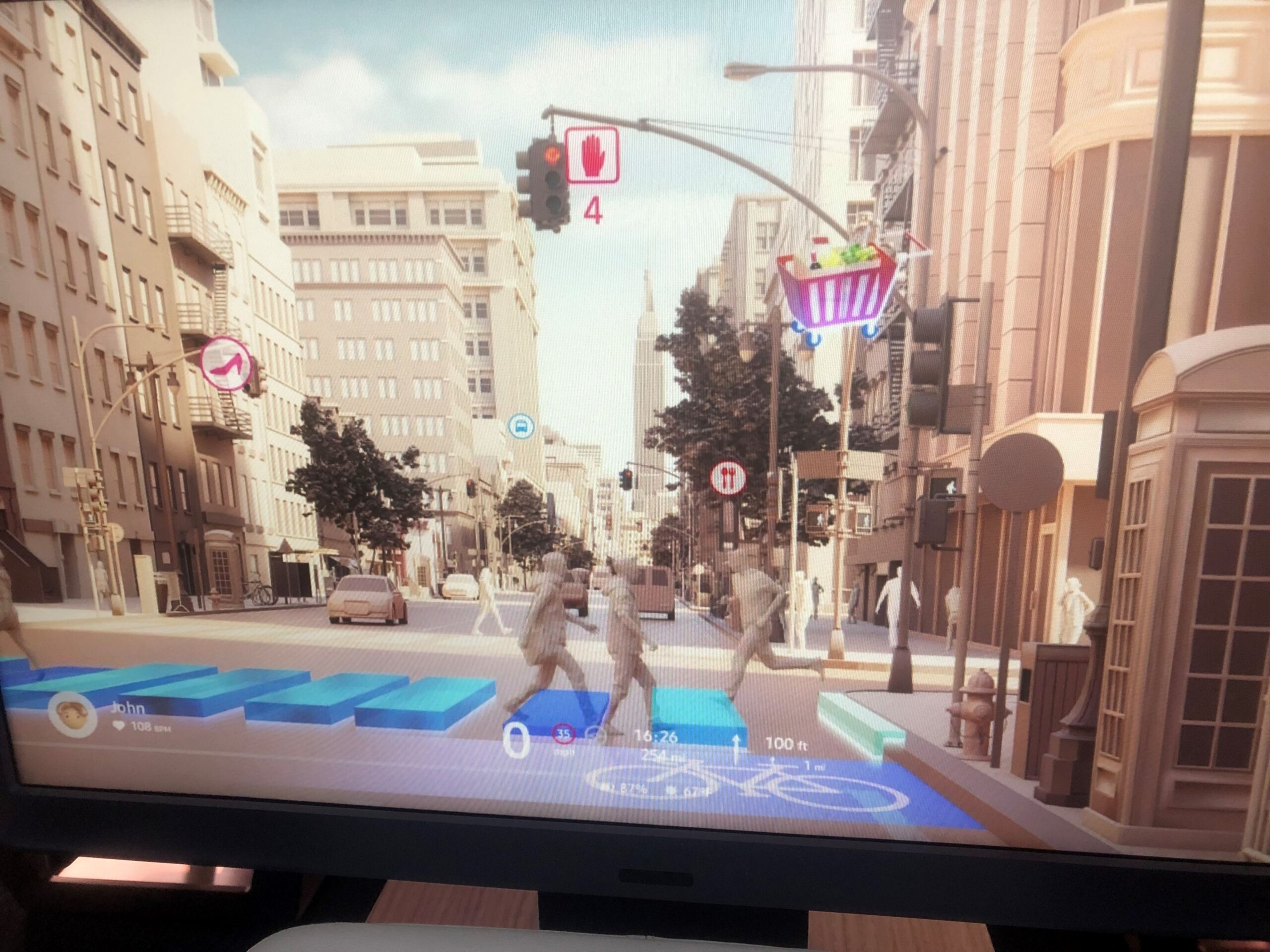
But AR doesn’t improve our vision – it’s a hi-tech alert system. Like GPS, it gets us to where we want to go – but it doesn’t improve our sense of direction. In fact, the more we rely on it, the more our instincts and ability to remember what’s ahead is diminished.
I hate to break it to you, but assessing, assimilating, and evaluating new technology and innovation is a full-time job.
I full-on realize that getting one’s corporate house in order in Q2 will be a tough task for many operators this year, but their responsibility to their shareholders, their employees, and their communities is to serve and lead. When CEOs are spending more time staring at spreadsheets than on the road ahead, nothing good will come of it.
I would also encourage you to read everything you can that helps you better understand how to connect those seemingly unrelated dots. Listen to smart people, attend a class, lecture, or webinar. Expose yourself to a thought process or philosophy that runs counter to yours.
“I can see clearly now.” – Johnny Nash
Like our damaged political discourse where most people hole up in their self-centered bubbles, not hearing an other side is ultimately harmful to our health and welfare.
Speaking of politics, it was the lack of vision that may have cost “41” – George Herbert Walker Bush – the election. He once openly complained about his inability to have “the vision thing” – a clarity of ideas and a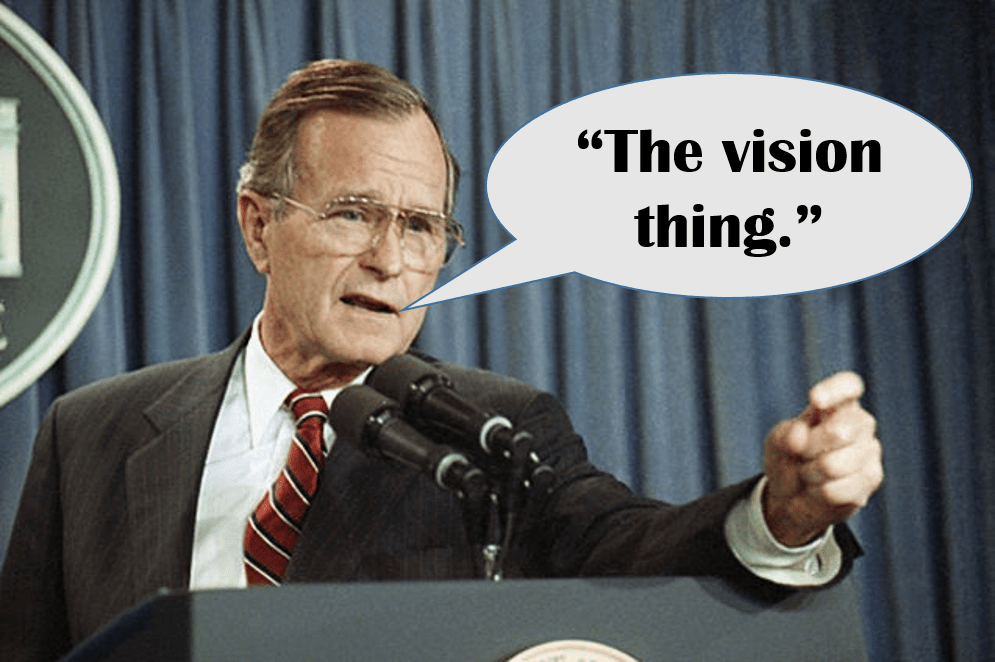 state of purpose. His “why.” That lack of focus and purpose was the bane of his presidency.
state of purpose. His “why.” That lack of focus and purpose was the bane of his presidency.
There’s no shortage of experts and visionaries who claim to have that all-important vision. Still, that doesn’t mean you have to agree with them. You can see things with your own eyes and make your own judgment calls. Yes, we should all agree on the facts of the matter, but we can hold different opinions at the same time about what it all means.
We are currently grappling with several of those issues right now in radio. And opinions are flying. The state of radio, the impact of the chat bot AI technology, the true value of “live & local,” what to do about those AM stations, radio’s continued ability to play a significant role in new music discovery, what to do about those bloated commercial loads.
They are all up for grabs. In the arena of ideas, there is room for all sorts of points of view. But perspective, vision, and clarity all matter. Our eyes must be wide open. 
If you think about some of the biggest inventions in radio – all-Christmas music, music scheduling on a computer, and even a new technology like AI, or voicetracking – they all came from a contrary place when they were first unveiled. Those who champion something new almost always are confronted with predictably pushback from the naysayers:
It’ll never work.
It’ll never last.
We can’t sell it.
It’s not the way we’ve always done it.
What do we need that for?
I starred in that movie with the advent of the Classic Rock format back in the 80’s. I learned – the hard way – that in most cases, the critics were staring at their rearview mirrors as they were barreling down the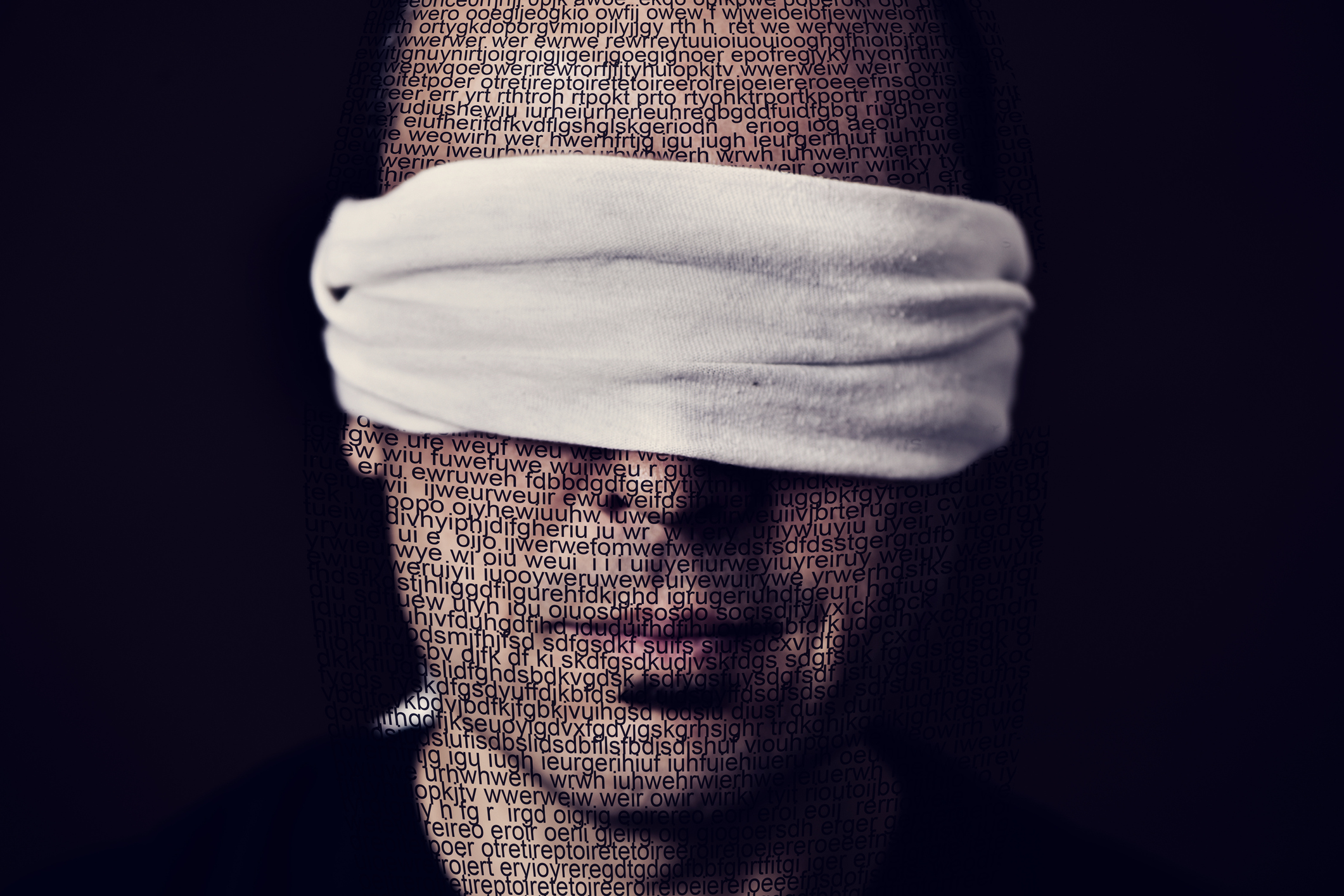 road. They weren’t using their eyes, but instead were hoping it would just go away.
road. They weren’t using their eyes, but instead were hoping it would just go away.
“Open up your eyes now, tell me what you see.” – The Beatles
Out of fear of losing our status, our reputations, or our jobs, many people bank on hope to help them when change comes along. Oftentimes, they simply hope “the new new thing” is just a fad, will fizzle out, or will fail to catch on.
Iconic Green Bay Packers’ coach, Vince Lombardi, is credited with coining the phrase, “Hope is not a strategy.” Of course, “The Pope” – as he was called by his loyal followers – was right. We simply cannot afford to shut out, laugh off, dismiss, or go into denial about the future. That’s often a recipe for disaster, the equivalent of leaving the door open to missing whatever’s next.
 In fact, that’s what directly affects my frequent insomnia. A couple of years ago, I gave it a name in a blog post aptly called “What Keeps You Up At Night?” back in 2018, In a spin on FOMO, I went with FOFB – or fear of falling behind. When one of you tells me about something I did not know about, it’s a reminder that we cannot be omniscient- all seeing. The best we can do is hustle to catch up when something new catches us off guard.
In fact, that’s what directly affects my frequent insomnia. A couple of years ago, I gave it a name in a blog post aptly called “What Keeps You Up At Night?” back in 2018, In a spin on FOMO, I went with FOFB – or fear of falling behind. When one of you tells me about something I did not know about, it’s a reminder that we cannot be omniscient- all seeing. The best we can do is hustle to catch up when something new catches us off guard.
That’s why I’m headed down that road – not too fast but not too slow. I’m looking straight ahead, trying for a wide shot. Because if you think about it in local markets – everything that matters is right in front of us – our hometown audience, retail “windshield business” where radio often works best, and our communities where politics, weekend events, sports, the weather, and neighborhoods are all within our view. We don’t have to visualize what’s going on. If our eyes are open and we’re looking ahead we can see it.
And the good news? We can train ourselves to get better at this, to sharpen our skills, to level up on what’s already going on around us, to improve our vision.
The faster things move, the more we need to make sure our eyes are in “wide open” mode – that we’re taking it all in.
At least, that’s the idea – looking ahead out that front windshield, trying to pick up whatever’s out there.
And my headlights are always on.

“I can see for miles.” – The Who
Tomorrow: A unique story about a radio pro with unique vision. He’s blind. – FJ
- What To Do If Your Radio Station Goes Through A Midlife Crisis - April 25, 2025
- A 2020 Lesson?It Could All Be Gone In A Flash - April 24, 2025
- How AI Can Give Radio Personalities More…PERSONALITY - April 23, 2025




Excellent article. Vision is a somewhat intangible factor that moves us positively into the future. Combined with courage and commitment, peering over the horizon with new ideas can transport us to exciting new places. Apple had vision, NASA had vision and media can have that same vision. Positivity, commitment and intelligent fearlessness. Imagine if media had the same future focus as technology companies that are inventing the future daily. It’s doable… just takes vision and AFDI ( actually f—-ing doing it ). Time flows forward and it’s critical to flow forward with it—- with vision as the engine. Good article. One of your best.
From you, Lee, high praise. You’ve always had “it.” Thanks for reading & commenting.
Hiya Lee! I agree! This is a thought-provoking post. And while reading your comment I kept thought, And he oughta know.
John as still wears his fuzzy, zip jacket you gave away at a show in, gosh….1997-8? while promoting XM. Quality merch!
As I heard someone once say (I could only wish to be smart enough to have thought of it myself), “The size of your windshield versus the size of your rear-view mirror should give you an idea of how much time you should spend looking at each “
Maybe the powers that be in radio should put listeners #1 on their list of concerns. It feels to me that listeners have fallen way down the list of what’s important for a radio station. Costs are #1, revenue is #2, advertisers are #3, and often a host of subsets of the above are considered before thinking about what listeners want. If you reach listeners effectively, the rest will fall in line. More and more it’s about efficiency, not effectiveness, and listeners are going elsewhere because the content doesn’t offer a better product than an online jukebox.
This was a great column Fred. Piling on here, but often people don’t react appropriately to what they see in the windshield. Whether its radio ignoring its own research regarding what’s most important to its listeners and doubling down on the opposite, or politicians ignoring its own research and pushing ideas and legislation that are often wildly unpopular, its not just where you look and what you see, but what you do with that input.
Too often – and radio is a prime offender, people do the equivalent of seeing someone crossing the street and running them over, rather than stopping. What can we do about that?
Too bad, as radio’s leaders pour over their spreadsheets deciding what to cut next, they don’t have a line item for employees that have vision. We need to retain and promote those individuals who are awake at night thinking about the future of radio.
Excellent article to start not only this week, but the Spring Season.
Thanks, Dick. Much appreciated.
Hiya Dick. You’re on the right track for management advice alright. But I’m almost certain that very few people, let alone employees, have much vision or gumption for that matter. Otherwise, as in my own past, they leave to do their own thing. Plus, if you really do “invent” something while working, the company owns that invention so you best leave and take your ideas and inventions somewhere else. And that is why it is the visionaries and Inventors who must step up and do those things that help these people. ahem, go see what we’re up to now.
Excellent post today. Something jumped out at me as I was reading – “I full-on realize that getting one’s corporate house in order in Q2 will be a tough task for many operators this year, but their responsibility to their shareholders, their employees, and their communities is to serve and lead.”. The order here is what struck me – shareholders come first, followed my employees and finally at the end, the community. Yes, I am a nonprofit person and I have a nonprofit heart, but doesn’t seem a little backwards? The FCC doesn’t grant a broadcast license to serve shareholders, nor do shareholders win when the community comes last. Sure this wasn’t intentional, but I’m reading this blog post and doing my best to look out that big windshield….and this is what I saw.
I should’ve been looking out the windshield of a Mack truck, Abby, to make sure I was seeing the entire radio industry for this post. Thank you for getting me on the right road.
Radio is where I grew up in business. It has been a true love of mine and as you know there aren’t many bigger believers, but things have changed. They’ve changed dramatically and fast. Younger generations aren’t listening to radio much anymore nor do they have the desire to work in the industry like they once did. They want what they want when they want it, and radio can’t fulfill that need. Billing is down dramatically over the years as money flows elsewhere. Expenses are being cut affecting radio company’s abilities to innovate through research and creativity. Good people who are visionaries are leaving the business and or being cut. It’s sad to see coming out of the industry that I love so much but it’s in survival mode. It’s a monthly and quarterly outlook. Audiences are down and revenues have yet to recover from 2020 at least on the traditional side. Prior to 2020 revenues were bleeding out as well. I watch from the sidelines now and speak with and work with people who constantly have innovation at the forefront of their thought process. Time is passing quickly, and disruption of our business continues to cause havoc. The depth of answers from leadership are thin. Innovation is not being seeked out enough. Certainly not to the degree that will be needed to save this once great business. The way that the younger generations are thinking isn’t in the rear-view mirror rather they are constantly thinking about creating new ways to solve the world’s problems through systems and innovation by developing products to improve people’s lives. Kids rarely discover music from radio anymore. People rarely get traffic or their news from the radio anymore. We need innovative thinkers in the business not transactors or programmers that listen to what 50 years olds want to hear. Radio needs to not figure out how to hang on by a thread and innovate in order to survive. Radio needs to find people that are not looking towards the finish line with the hopes that they will get there unscathed without drastically changing and innovating. Radio leaders need to spend some time inside of tech companies to learn about looking through the front windshield. Sense of urgency is what’s needed so that our stock prices are not at 10 cents and 90 cents anymore.
Mindsets need to change; New well-funded blood needs to come into the industry to create things for the future. Survival shouldn’t be the main focus rather innovation needs to be at the tip of the spear. For now, I leave behind a once great industry with many friends who I wish to succeed. The answers may be there, but we need new blood with new ideas that want to save and grow the industry. I work with people who don’t listen to radio. It’s scary. Time to wake up and change as I want to see success from the industry that I love. Thanks for sharing Fred. This was a great article.
Fred, as I stated in my LinkedIn group The Radio Invigoration Project when I posted your article. “Required reading! We can make a difference. We can’t wait for corporate; we have to jump into the fray, speak up, and look in the personal mirror at who we are and what we stand for, as we view the windshield of the future. Change is the opportunity for growth. Let’s get invigorated!”
I always appreciate the frankness with which you point out the state of radio and the path that must be taken. Words do matter, and your content, faith in the future, and shared vision are critical to what radio (insert media, audio, or whatever we should call it) can become.
Thanks so much, Alec. Much appreciated.